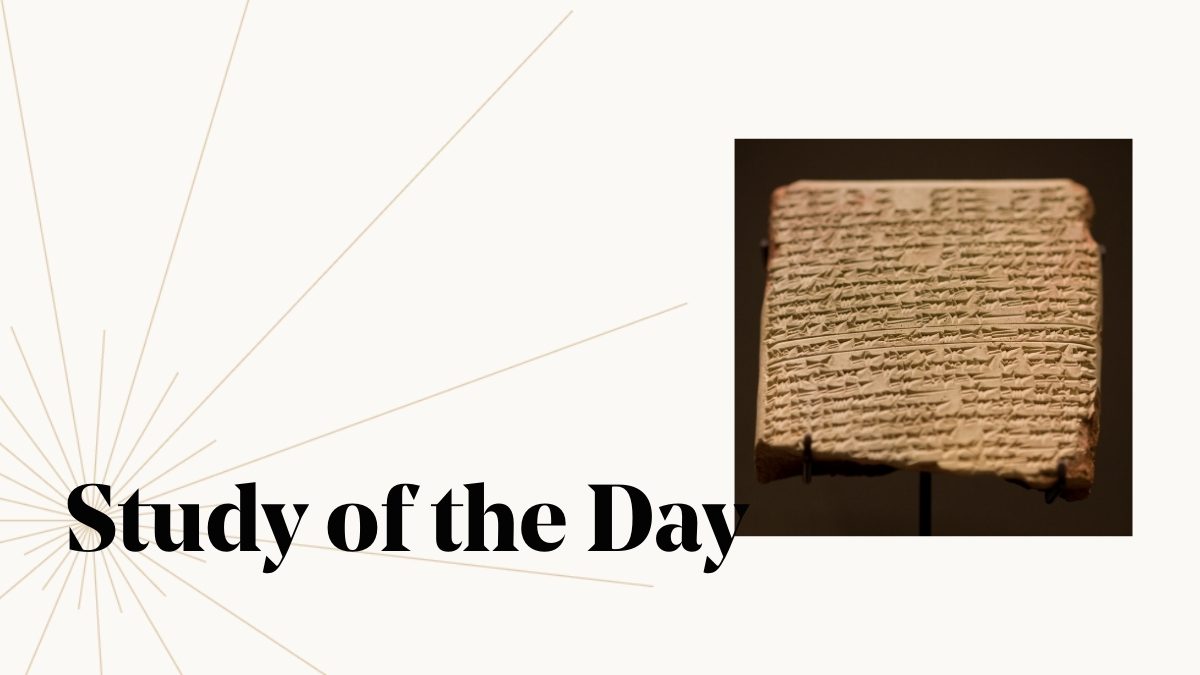In our Study of the Day feature series, we highlight a research publication related to a John Templeton Foundation-supported project, connecting the fascinating and unique research we fund to important conversations happening around the world.
People have been debating what counts as wisdom for a long, long time. Indeed, arguably the oldest literature we have is wisdom literature, in a baked clay tablet with triangular cuneiform inscriptions, excavated in Iraq and containing the “Instructions of Shuruppak,” the earliest dated copy (c. 2600 BCE) of a well-known ancient list of advice including “Do not buy an ass which brays too much” and “Do not answer back against your father, do not raise a ‘heavy eye.’” Nearly as ancient but more familiar to modern readers is the “Hymn of Wisdom,” from the Biblical book of Job, which laments that wisdom remains utterly hidden from man: “Where can wisdom be found, and where is understanding located? No man can know its value, since it cannot be found in the land of the living.”
In their everyday lives, people are constantly making judgements as to where — and with whom — wisdom might be found. Sociologists have long assumed that the nature of those judgements would vary significantly across cultures, with different groups defining and recognizing wisdom quite differently. That was the starting assumption for a group of social scientists led by Maxim Rudnev, a researcher at the University of Waterloo in Canada, when they set out to survey perceptions of wisdom among people in 12 countries across five continents, representing 13 languages and a range of ages and socioeconomic groups. What they found, though, was a surprising agreement across cultures. A person’s expected wisdom, knowledge and understanding tends to be assessed along two key dimensions — one of which functions in an unexpected manner.
Are You Wiser Than a 12-Year-Old?
Rudnev’s team created their surveys by designating a set of ten target individuals, ranging from “a medical doctor who has been healing people for fifteen years” and “a scientist who gathers information about plants, animals, and people to make sense of the world” to “a very religious person” and “a twelve-year-old child who lives with their mother and father.” Participants were given random pairings of target individuals and asked which they would expect to exhibit more of a broad set of 19 characteristics drawn from previous philosophical or psychological scholarship on wisdom.
Who would they expect to “think before acting or speaking” — the doctor or the religious person? Who would be more likely to “maximize the benefit for their group, regardless of the cost for others” — the schoolteacher or the 75-year-old? Who would better “be aware of others’ facial and bodily expressions” — the scientist, or the survey-taker themselves?
Finally, participants were asked to directly rank the target individuals on wisdom, knowledge, and understanding. Armed with the results, the researchers were able to map which characteristics were most closely related to perceived wisdom. They found that two groupings correlated with wisdom assessments across the groups. One is what they termed reflective orientation (ability to control emotions, think logically, recognize change, etc.); the other is socio-emotional awareness (such as care for others’ feelings, humility, attention to divinity, or sense of humor).
The effect of an increased reflective orientation was straightforward — people who ranked high on those characteristics ranked high on wisdom as well. Interestingly, increased socio-emotional awareness essentially exaggerated the positive or negative effect of a person’s reflective orientation.
For reflective people, socio-emotional skills correlated with increased wisdom. But for the unreflective, above-average socio-emotional skills mapped to an even lower wisdom ranking. The authors note that people have a longstanding category for the hermit who lives alone and ignores social conventions yet is thought exceptionally wise. But for the unreflective, increased socio-emotional skills may simply serve to more effectively broadcast their unreflectiveness. As the Biblical wisdom literature of Proverbs puts it, “Even a fool who keeps silent is considered wise.”
Still Curious?
Read “Dimensions of wisdom perception across twelve countries on five continents”
Nate Barksdale writes about the intersection of science, history, philosophy, faith and popular culture. He was editor of the magazine re:generation quarterly and is a frequent contributor to History.com.
Get to know more of the experts behind your favorite articles on Templeton Ideas. Meet our authors here.
